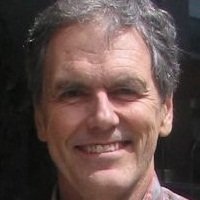How to Become a Curriculum And Instruction Professional

Bertram "Chip" Bruce is professor emeritus of library and information science at the University of Illinois at Urbana-Champaign. Prior to teaching library and information science, Chip was a professor of curriculum and instruction for 10 years, and he also taught computer science for three years.
He earned an undergraduate degree in biology at Rice University and then pursued his PhD in computer sciences at the University of Texas at Austin. Chip has held a Fulbright Distinguished Chair at the National College of Ireland in Dublin, and he is currently editing a series of three special issues of a journal on “Progressive Education: Past, Present, and Future.”
What is curriculum and instruction?
It’s a field concerned with both what to teach and how to teach. The focus is most often on K-12 education, but can apply to any kind of learning in any setting.
What do you find most interesting about curriculum and instruction?
Learning is a fundamental aspect of life. It’s something we need to do to survive, but also something that gives meaning to every activity. At its best, curriculum and instruction is about how to enhance learning.
What is your least favorite aspect of curriculum and instruction?
The focus today on the minutia of formal education, brought about by well-meaning but simplistic understandings of learning. This is reflected in standardized testing and inappropriate accountability measures for educators. For example, issues of civic responsibility, critical thinking, the arts, and complex problem solving are often given short shrift.
Are there subfields of curriculum and instruction that students might not be aware of?
It’s increasingly applied to learning in the workplace, in museums and libraries, online, and in other settings beyond K-12 classrooms.
What careers do students commonly pursue with a degree in curriculum and instruction?
The most common is direct classroom teaching, but many become curriculum developers, test designers, staff developers, professors, and other positions.
Is a graduate degree preferable for a career in curriculum and instruction, or can someone enter the field with a bachelor's degree?
A bachelor's degree is usually sufficient for elementary school teaching, but increasingly a master’s degree is expected for teaching in special areas or at the secondary level. The key thing to check is state requirements for certification.
What personality traits do you think a student should have in order to be successful in a curriculum and instruction program?
A commitment to lifelong learning for oneself, caring about others, and good communication skills. The best teachers embody these and many other traits we associate simply with being a full human being.
What electives would you recommend that a student in a curriculum and instruction program take?
Following that commitment to lifelong learning, I’d try to learn as much as possible about all sorts of things. It’s hard to name something that would not be useful in the field.
What study tips would you give to a student to help him or her succeed in a curriculum and instruction program?
Develop good organization skills to manage the many theories, methods, and examples that you’ll encounter.
Do you think curriculum and instruction is a subject that can be studied online, or is a traditional class environment ideal?
Many aspects can be studied online. But direct, in-person interaction with students and other teachers is essential, too. It’s a requirement for all state certifications, as far as I know.
What subjects should a prospective student of curriculum and instruction study before entering a formal college program?
Again, anything you learn can be applied. Good teachers often build upon their own learning and interests.
What pieces of advice, or caution, would you offer to a prospective student of curriculum and instruction?
We all do informal teaching in many ways in our lives. I’d look for opportunities to explore that more, in order to find out what kinds of teaching (young children? older adults? science? music?) I like best.